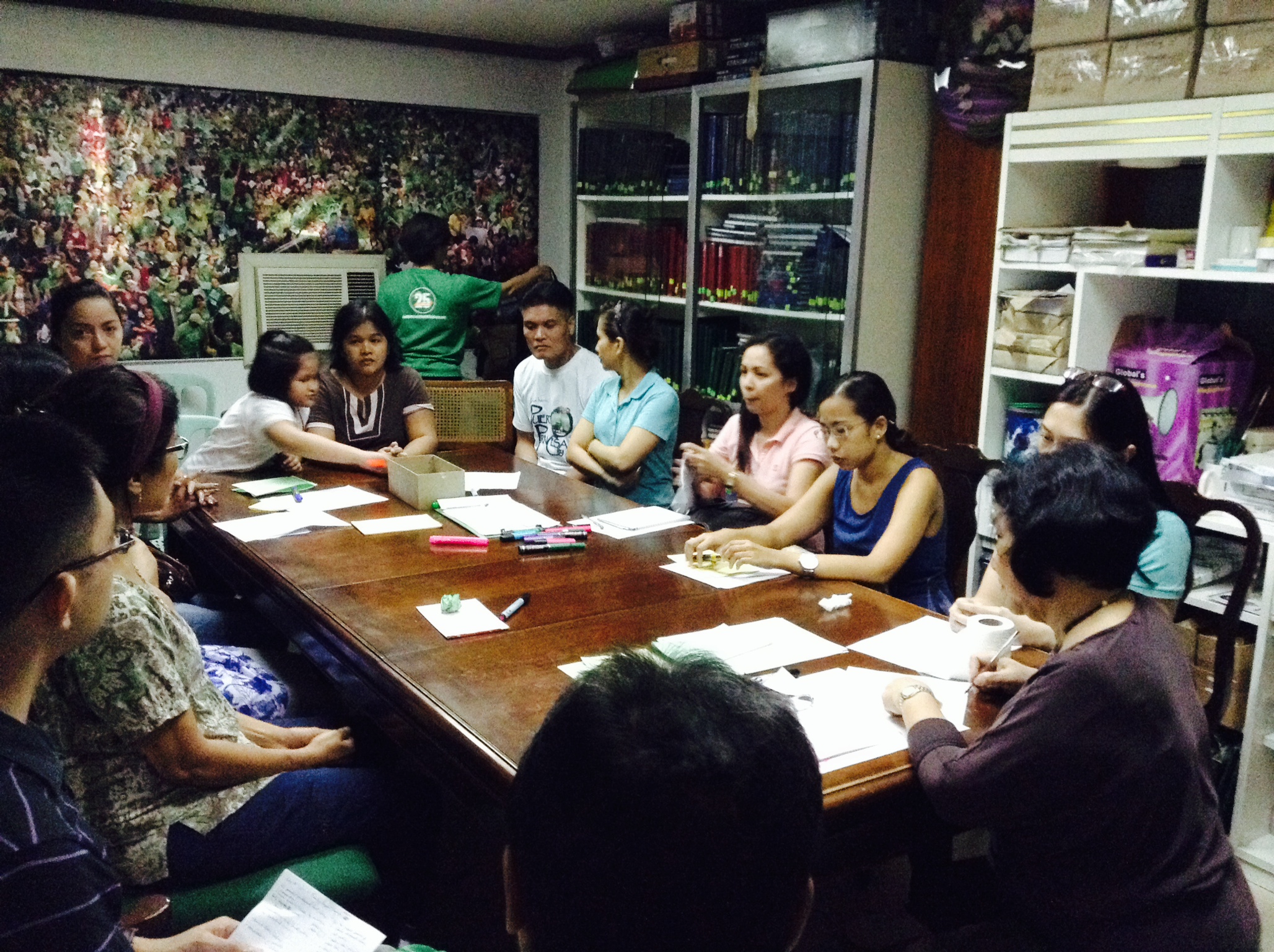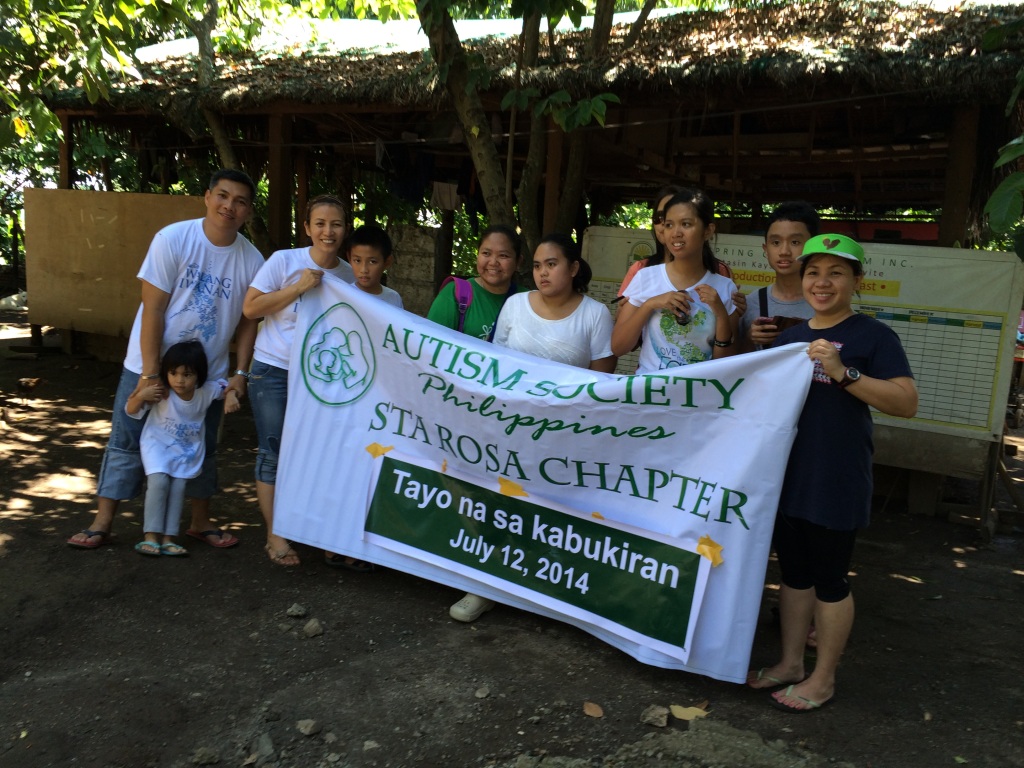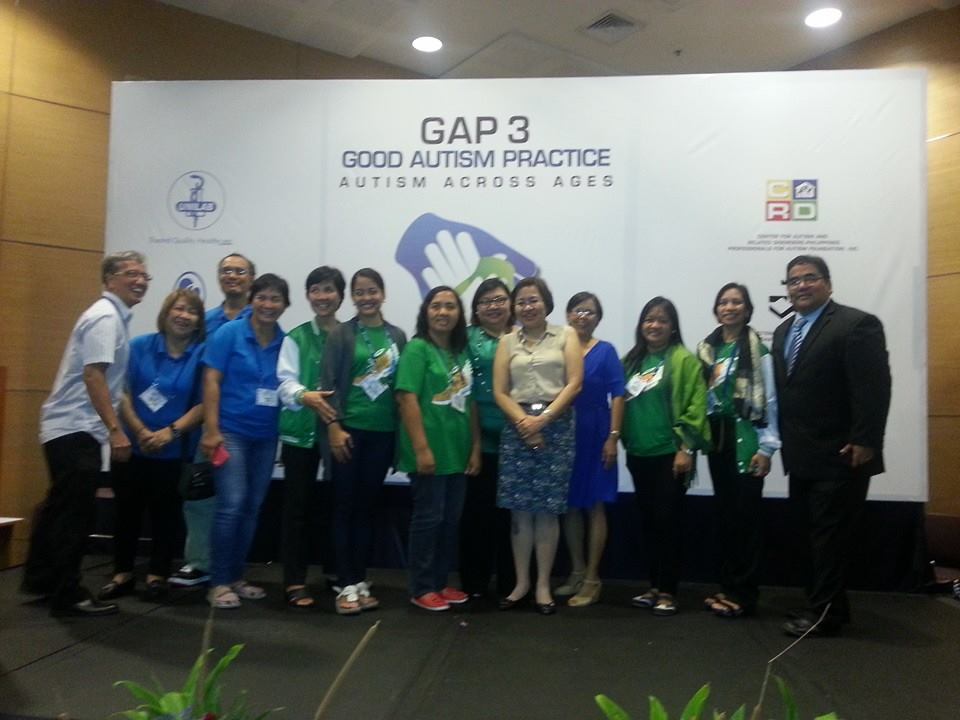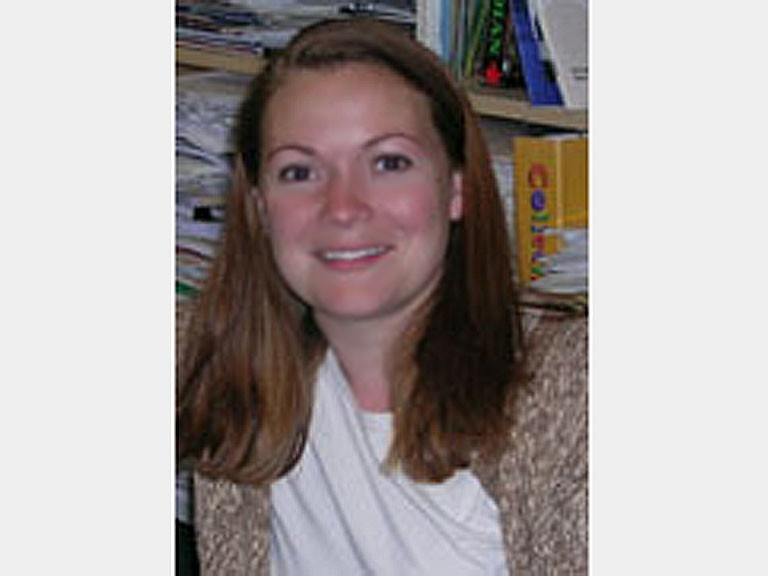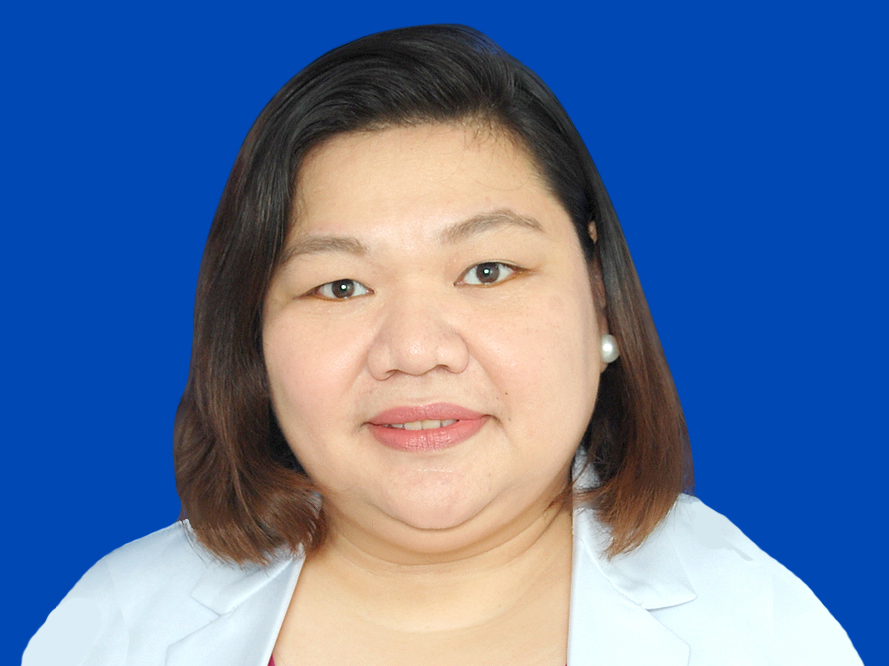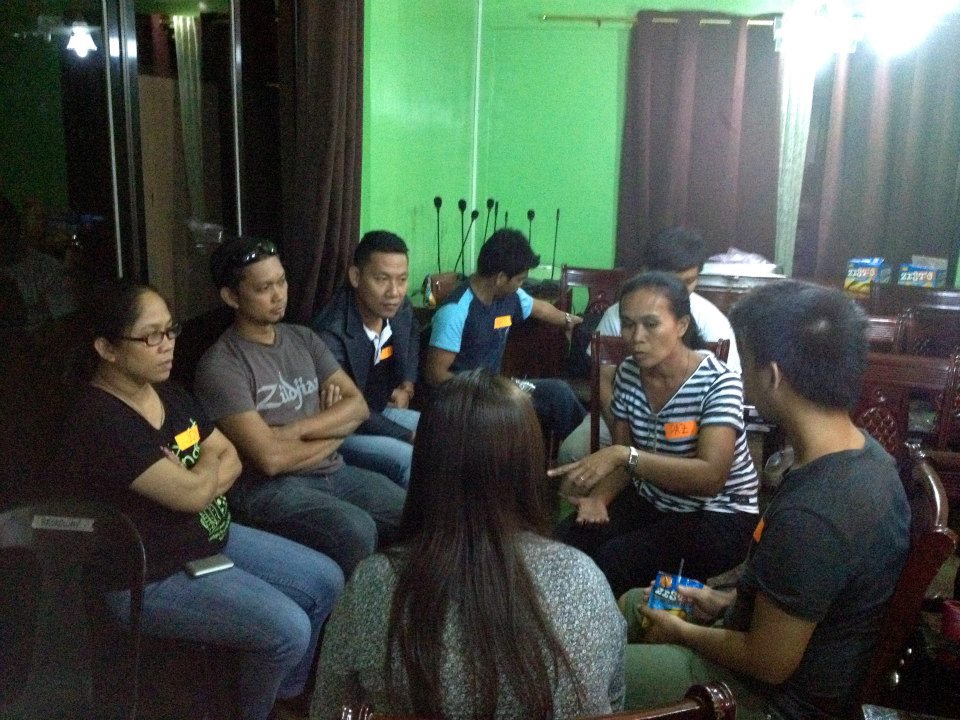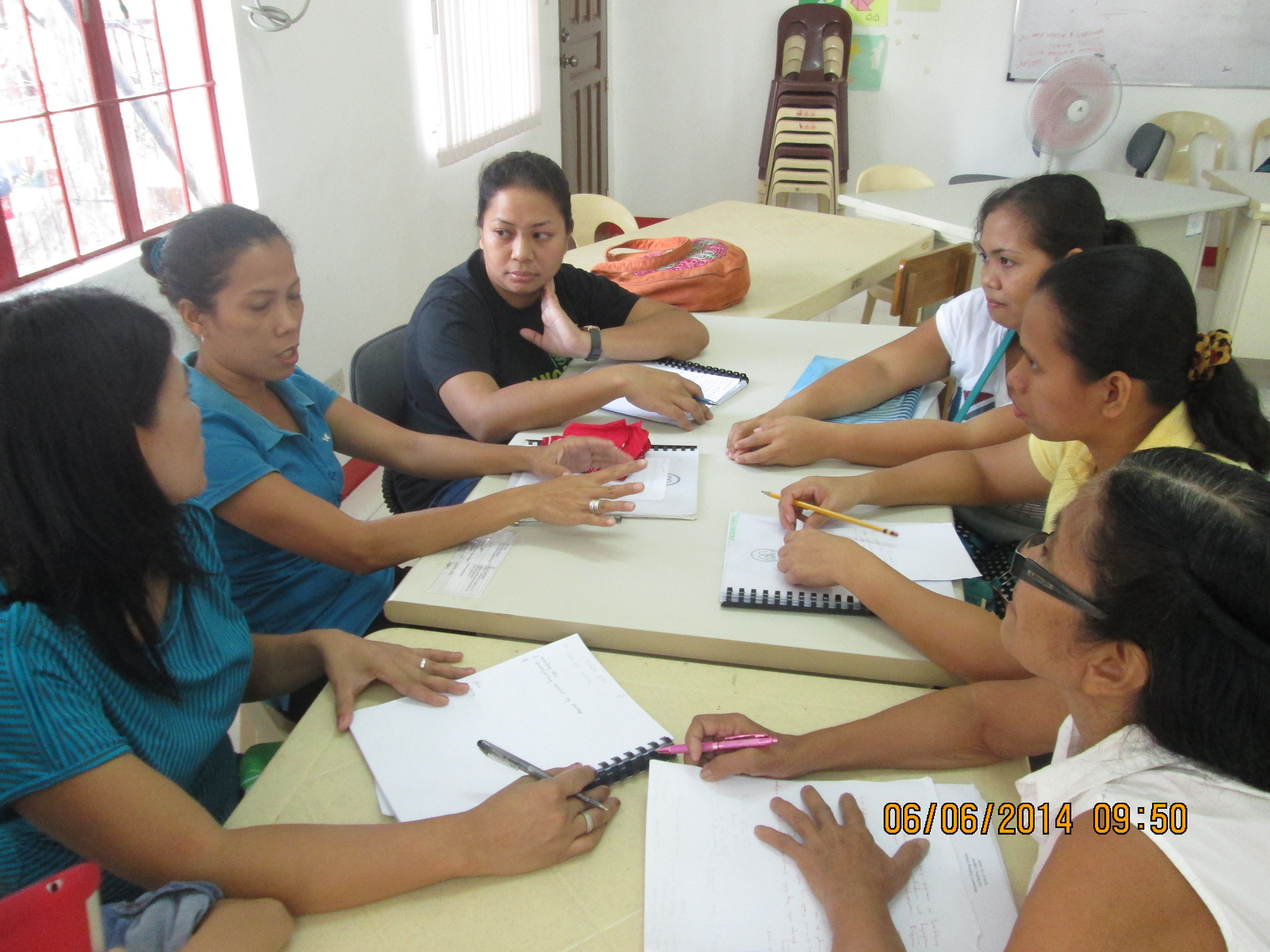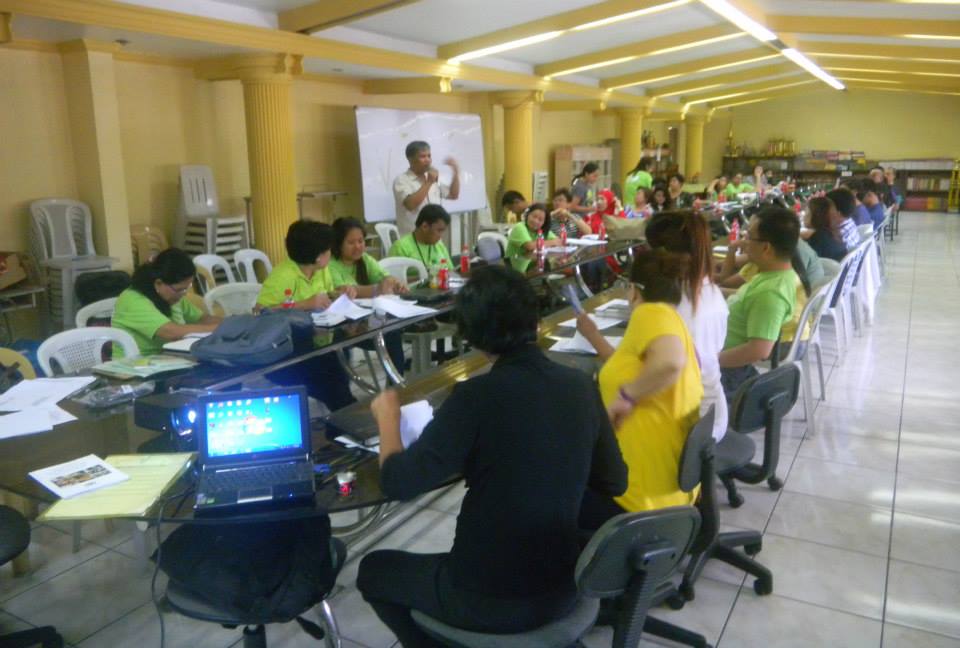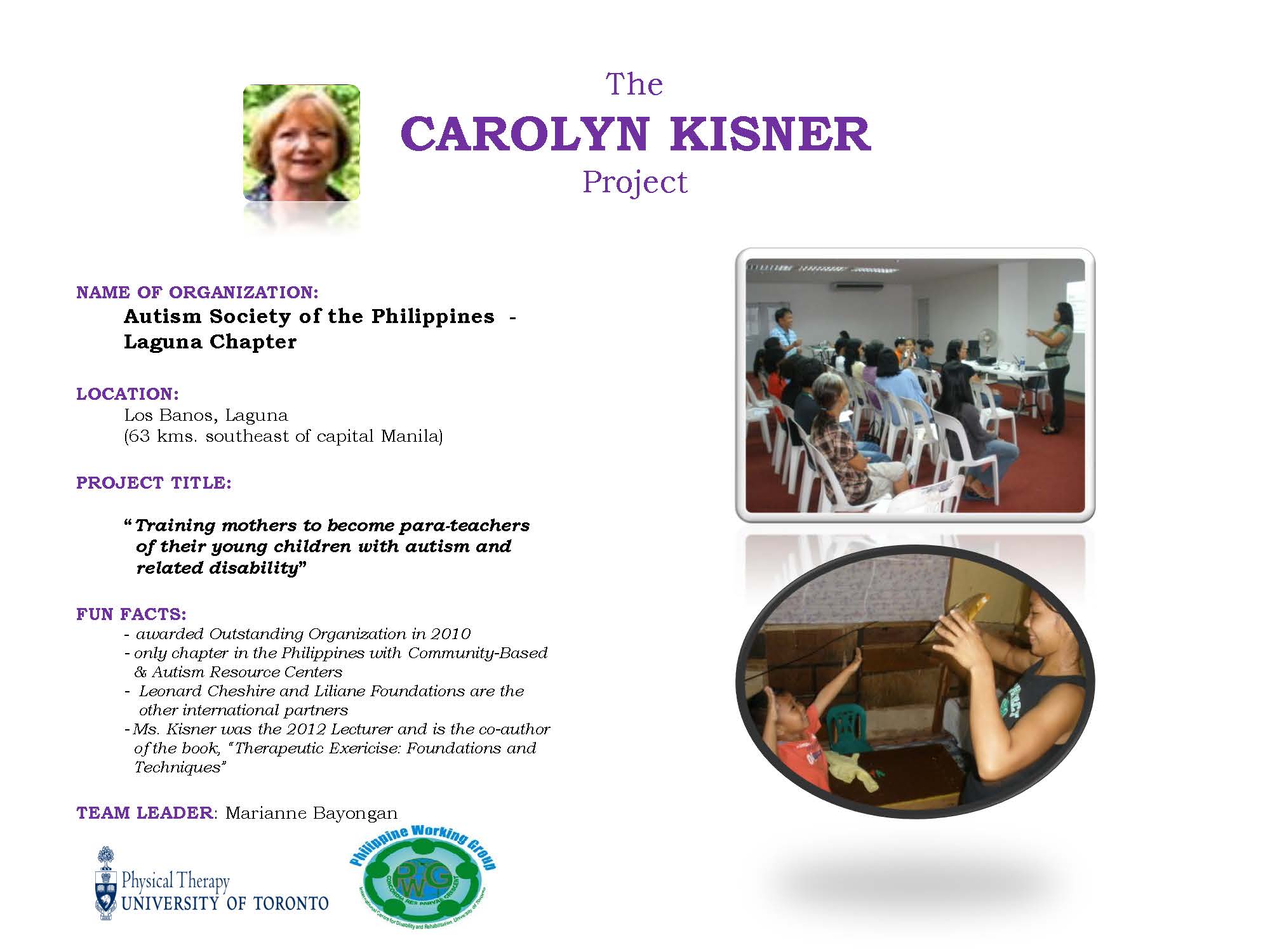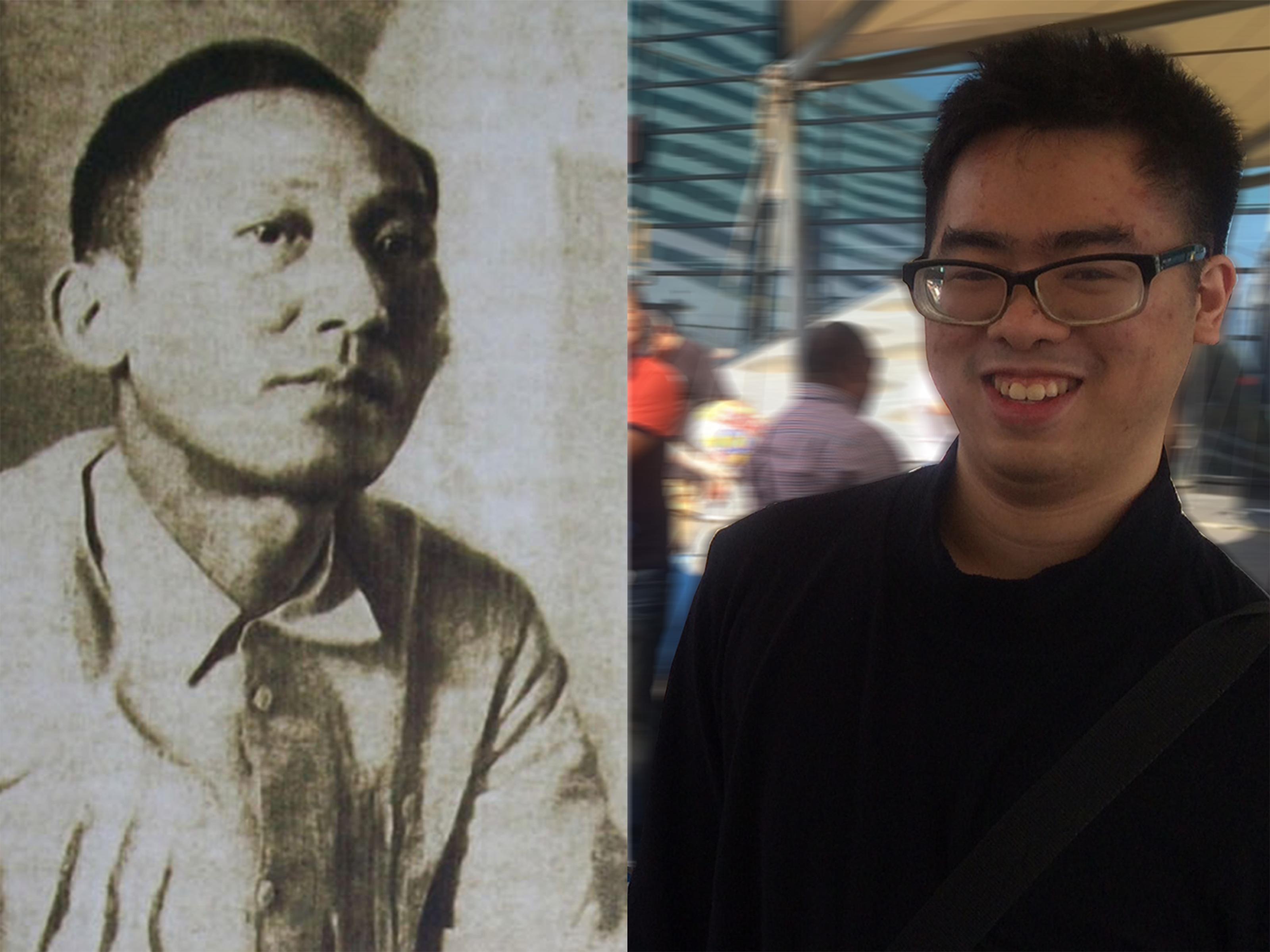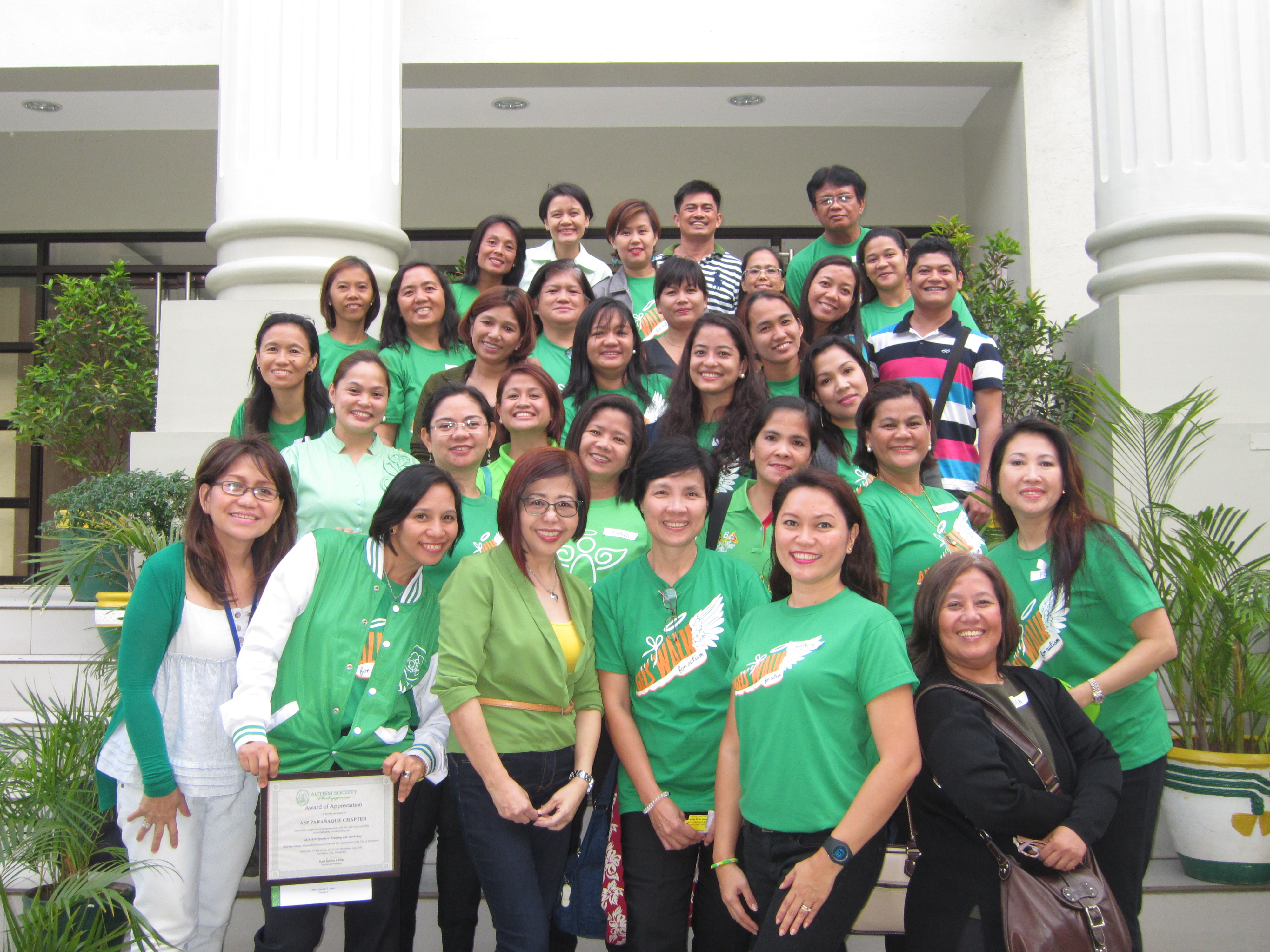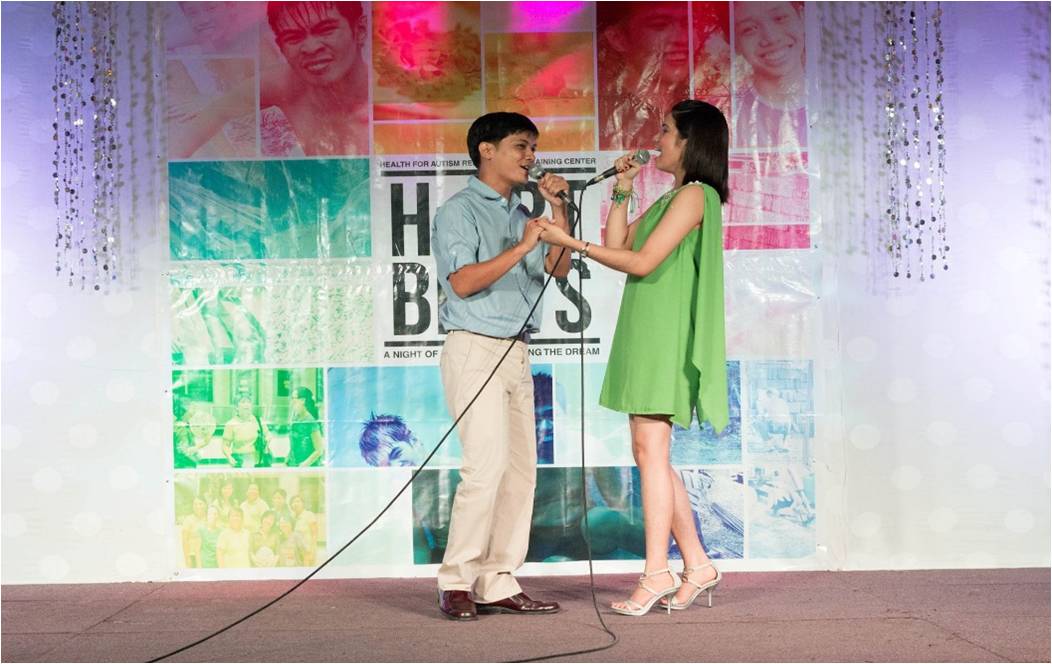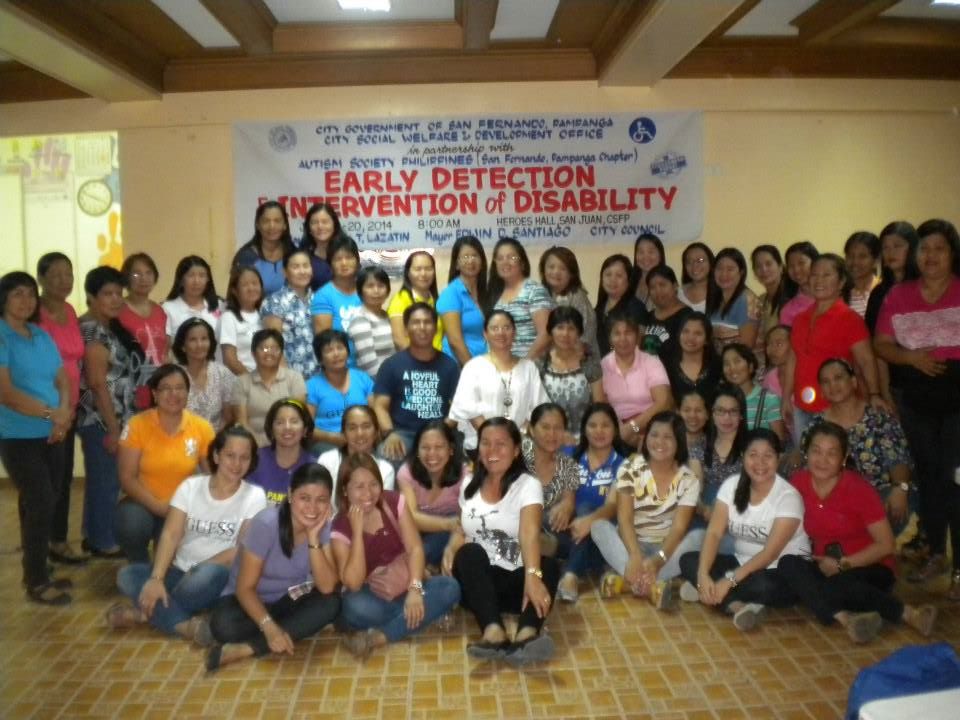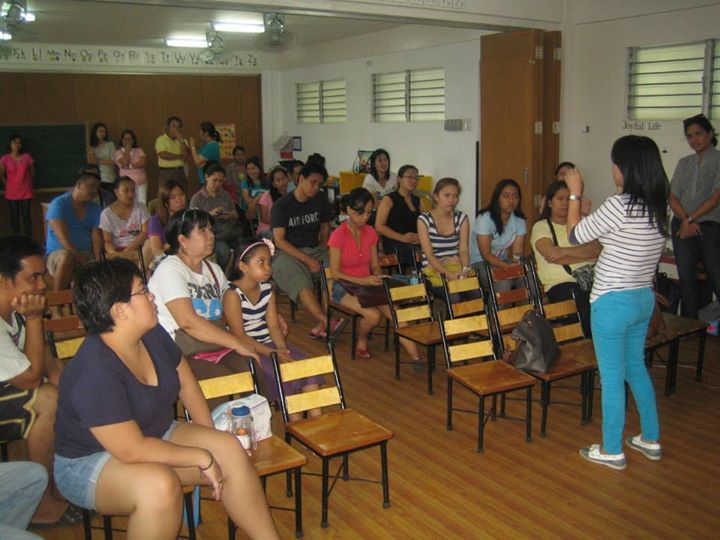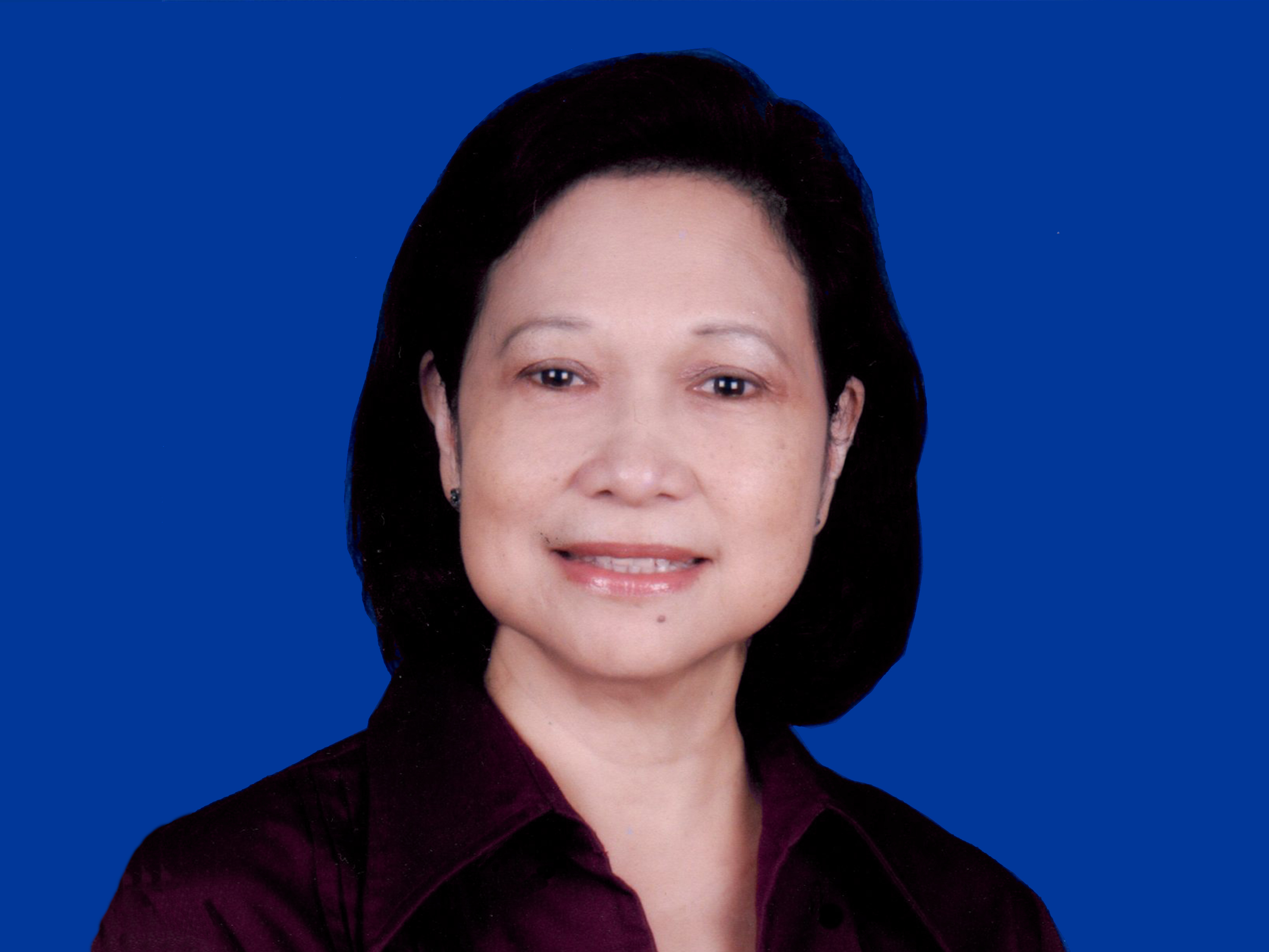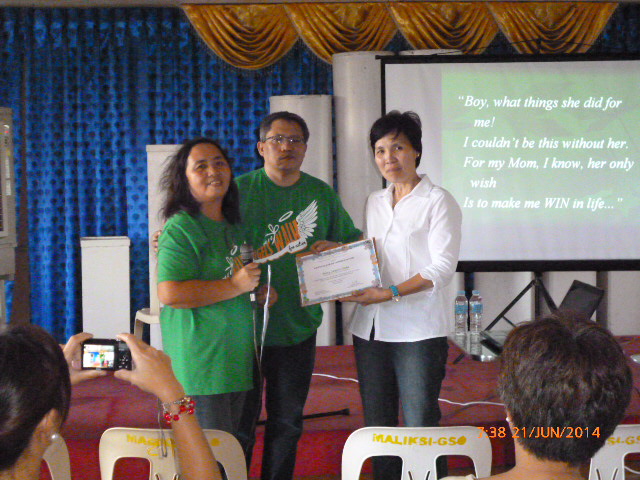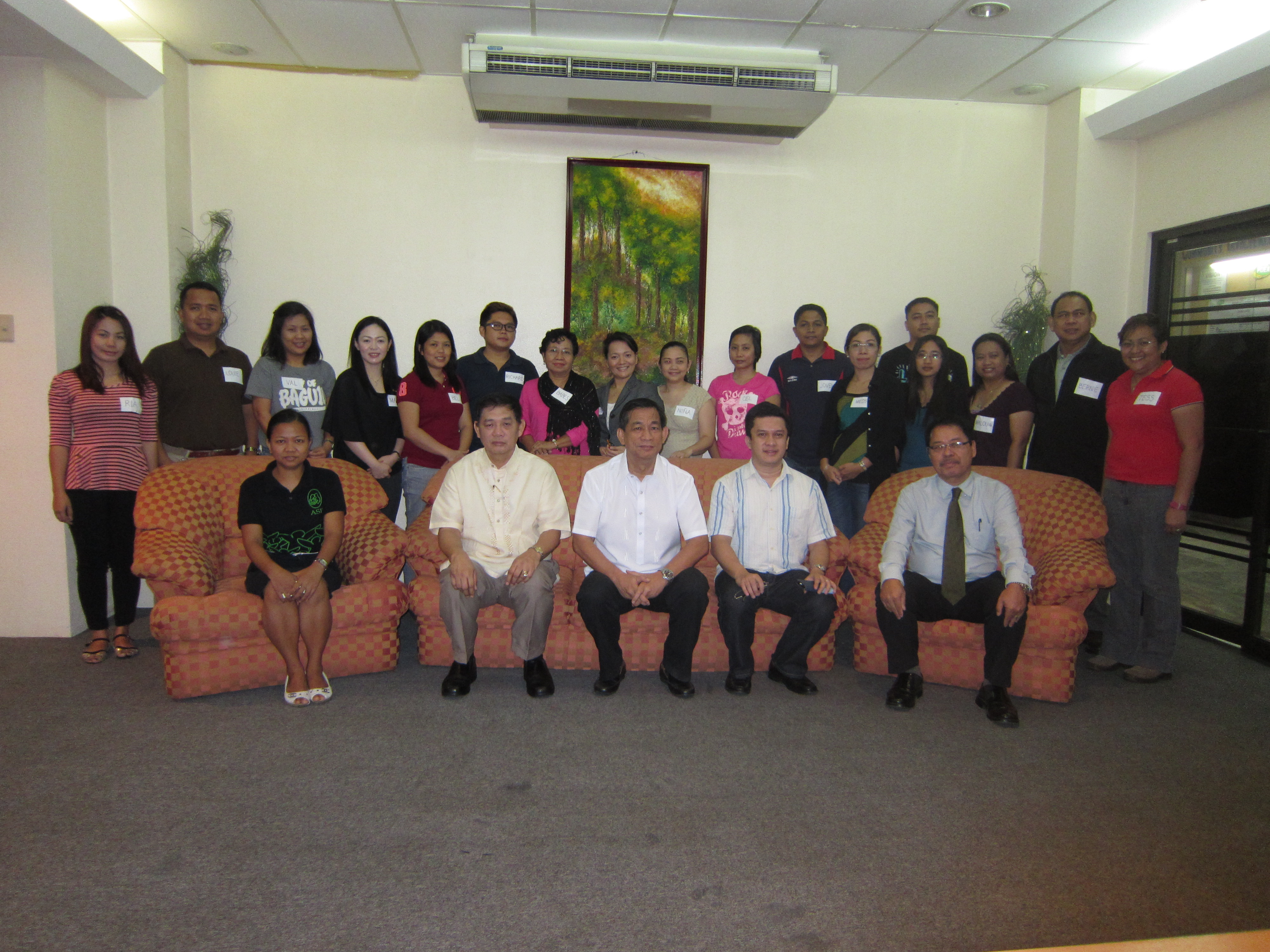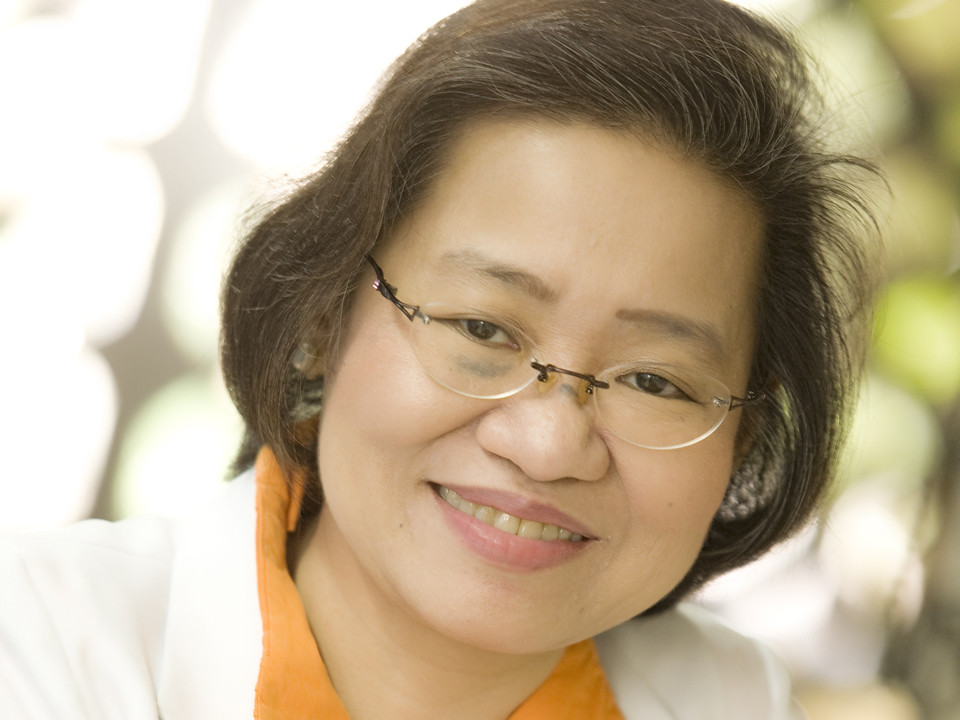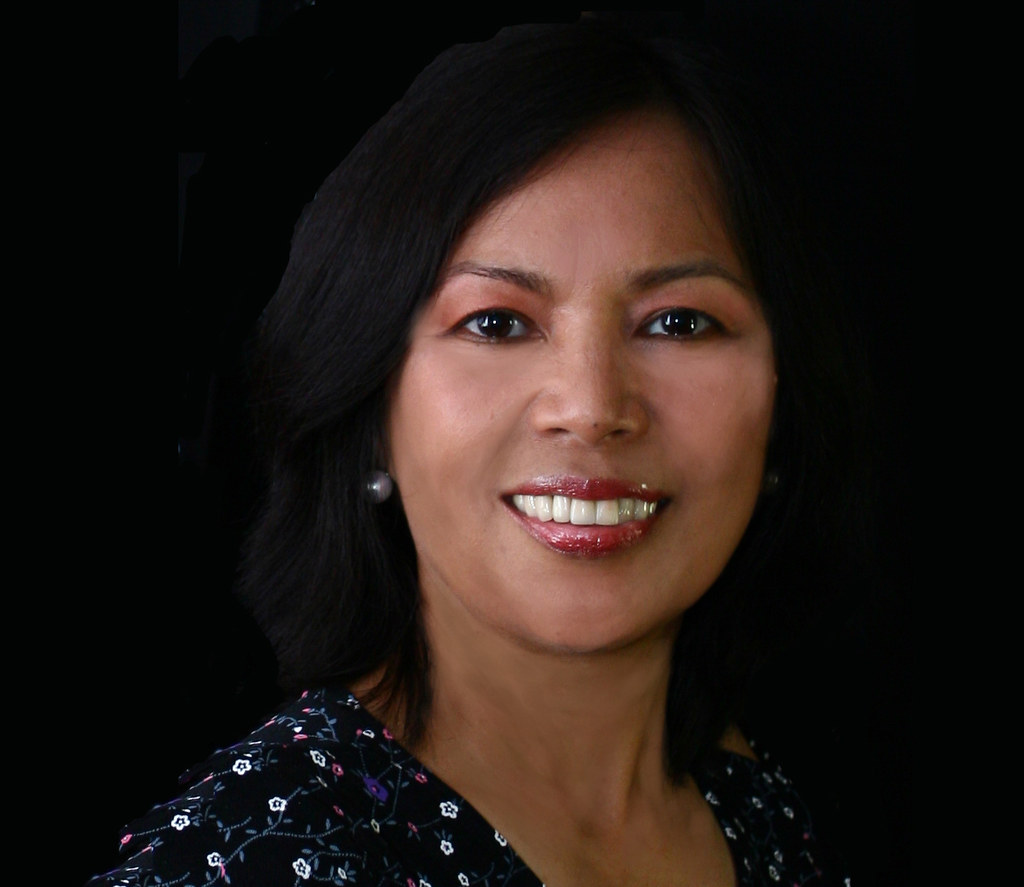The 36th National Disability Prevention and Rehabilitation Week celebrations took off last 17 July 2014 at Department of Foreign Affairs. Despite the nation’s capital being battered by Typhoon Glend, the DFA, NCDA, and PWD Sectors came in full force, making the opening a success. With the theme, “Talino at Paninindigan: Pasaporte sa Kaunlaran,” the events which coincided with Apolinario Mabini’s 150th birthweek, highlighted the talents and achievements of Filipino PWDs.
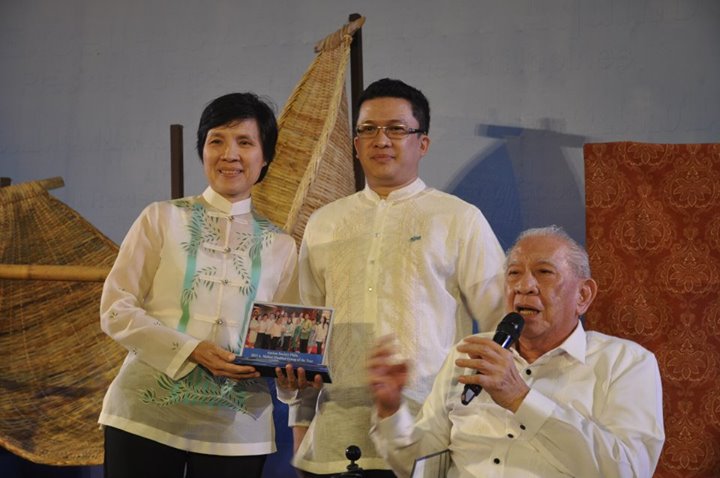 |
| Ms. Janette Peña, Mr. Rafael Torralba and DFA Secretary Albert Del Rosario on stage |
The day’s celebration started with the ribbon cutting of the photo and painting exhibit, “Arts in Silence: International Abilympics Champions.” The exhibit showcases the work skills excellence of PWDs who competed in International Abilympics: Dennis Balan, Jose Dela Cruz, Jason delos Reyes and Raph Torralba. Vice President Jejomar Binay and DFA Secretary Albert Del Rosario led the ribbon cutting. The Vice President then led the Wreath Laying Ceremony in the bust of Mabini inside DFA. The Holy Mass proceeded with Fr. Alexander Tomas, the Minister of Archdiocese of Manila Ministry on PWDs, presiding.
DFA Secretary Albert Del Rosario, in his speech, highlighted Mabini’s life as “a shining example of overcoming disability to realize one’s full potential. He defied expectations, demonstrated an unwavering commitment to freedom, and helped shape Philippine foreign policy.” In his keynote speech, the Vice President emphasized that the country should move as one in raising the public awareness on PWDs and urge the Filipinos to work together towards the seamless inclusion of every Filipino in the ordinary life.
His Excellency, President Benigno Aquino, delivered his NDPR message through NCDA:
My warmest greetings to the National Council on Disability Affairs as you spearhead the 36th National Disability Prevention and Rehabilitation Week.
Our nation affirms that nothing can undermine the potential of a people committed to progress. Our differently-abled countrymen are taking the lead in harnessing this potential, imparting their gifts to promote fairness and equal opportunity in diverse spheres of society. May this week-long observance infuse vigour to our cause; may it allow us to synergize our undertakings and distinguish this decade as the period when every Filipino has extended his capacity to build an enabling environment for all.
Solidarity and indomitable spirit characterize our people’s narrative. Across generations, we come upon stalwarts of this legacy, including Gat Apolinario Mabini – an exceptional man of his time – a leader, reformist, and true patriot. By examining his story and of those who triumphed despite physical odds, we become cognizant of our strength; we recognize that no circumstance can hinder us from pursuing our goals or partaking in development. Let us strive to emulate the industry, optimism, and resolve of our forbearers, that we may further this era of resurgence and bring our vision of an empowered Philippines to fruition.
About the author: Raphael Torralba is the Program Coordinator of ASP and its resident photographer. He is a former media photojournalist and a graduate of Bachelor of Science in Business Administration Major in Computer-Based Information Systems. His advocacy to serve the PWD community has been recognized by the National Council on Disability Affairs. Raph's youngest brother, Patrick, is on the spectrum.
During the launching of Apolinario Mabini Awards 2015, ASP President Jan Pena received from PFRD President Manuel Agcaoili the plaques for ASP and Chair Emeritus, Dang Koe for winning the Best Disabled Group and Best Rehabilitation Volunteer respectively in the 2013 awards. The highlight of the event was the stage musical play on the life of Mabini. The cast were composed of PWDs and non-PWDs.
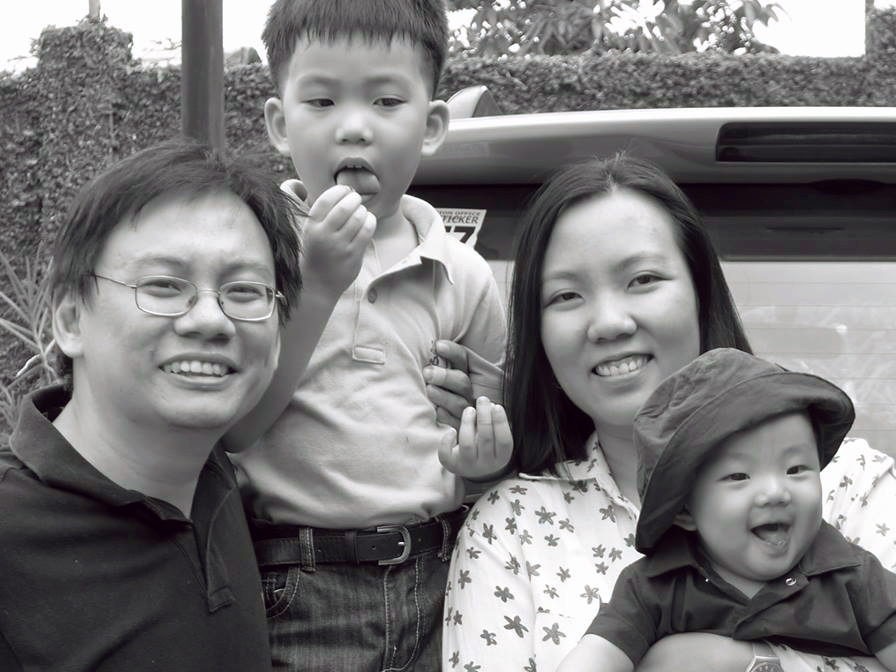


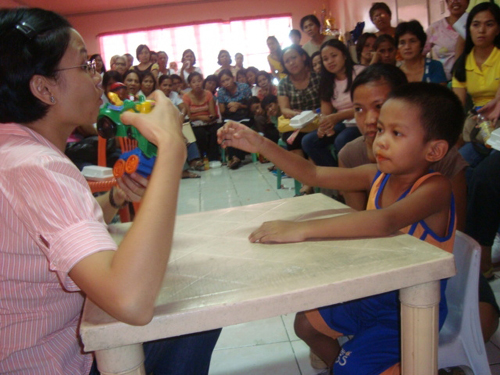
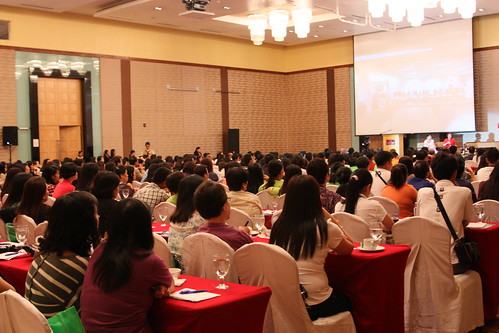

 Posted in:
Posted in: 